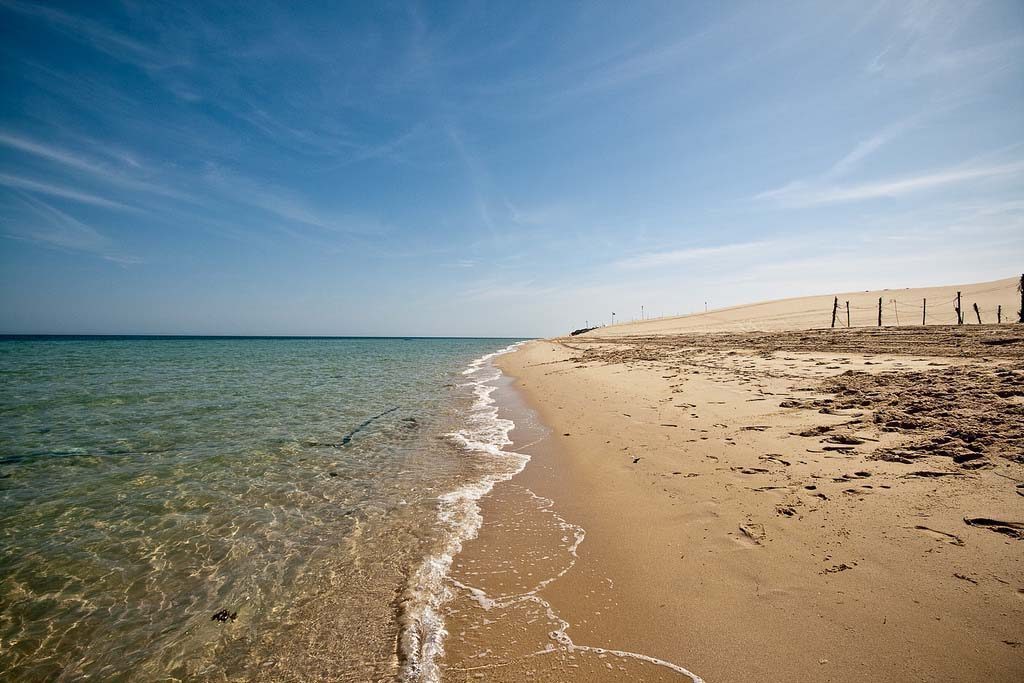
Qatar’s environmental record has been improving over the past several years, but it is still among the top consumers of productive land and water, states a new report from the World Wildlife Fund.
The Gulf country is now ranked as having the second-highest ecological footprint globally, down from holding the top spot in 2012, according to the WWF’s Living Planet Report 2014. Kuwait now has the world’s worst footprint.
Despite Qatar’s marginal improvement, the report warns that the state’s consumption remains unsustainable, saying “if all people on the planet had the footprint of the average resident of Qatar, we would need 4.8 planets.”
The study, published every two years, is a health check on the changing biodiversity and ecosystems of the world, and measures the use of natural resources globally.
Qatar’ footprint
The report includes an index of 152 countries’ ecological footprints.
The footprints take into account the amount of biologically productive land and water area (biocapacity) required to produce the resources that an individual, population or activity consumes, and to absorb carbon dioxide emissions they generate. This is measured in global hectares.
Based on the latest available (2010) figures, Qatar’s footprint measured approximately 8.5 global hectares (gha) – the second highest figure in the world. This means it consumed and wasted more resources per person than almost every other country globally.
Only Kuwait fared worse, with a footprint of just over 10gha, while Gulf neighbor UAE trails Qatar with 7.75gha.
The world’s average footprint per capita was 2.6gha, and the global average biocapacity per person was 1.7gha in 2010.
Based on Qatar’s population at the time of 1.76 million, carbon emissions resulting from the burning of fossil fuels accounted for more than two-thirds (70 percent) of Qatar’s footprint.
In the previous (2012) report, which reflected 2008 numbers, Qatar topped the world in terms of its consumption and waste, recording a footprint of 11.64gha.
Energy inefficiency
With such a small population, Qatar’s overall impact on the environment is rather negligible. But residents’ consumption habits stand out in stark difference to those in most of the rest of the world.
The country regularly tops global tables as being among the world’s least energy efficient countries per head and is also one of the world’s biggest consumers of water.

Figures from another recent study state that Qatar residents are among the highest energy users in the world per capita.
The Oil Price report put the country in second place globally in terms of energy consumed per person, just behind world-leader Iceland.
Using World Bank figures, each person in Qatar gets through an average of 17,418kg of oil equivalent – the amount of energy that can be extracted from one kilogram of crude oil.
Free (for nationals) or heavily subsidized energy has been blamed in the past for Qatar’s poor conservation of its resources.
National campaigns that aim to encourage more environmental awareness and conservation such as Kahramaa’s Tarsheed appear to be having limited impact.
Global trends
Globally, ecological footprints continue to grow. This means that the area needed to supply the ecological services people are using has increased faster than the world’s biocapacity – the land actually available to provide these services.
Even taking into account technological advances to improve yields, the report warns:
“The increase in the Earth’s productivity has not been enough to compensate for the demands of the growing global population.”
The report found that overall, the world’s population is using its resources 1.5 times more quickly than they can be replenished, with trees being felled, groundwater pumped and carbon dioxide emitted faster than the earth can replace them.
Its figures also show that between 1970 and 2010, the world’s population of fish, birds, mammals and amphibians fell by 52 percent – far faster than previously thought.
The 2012 report put the figure of decline at around 28 percent for the period 1970-2008, although these figures were based mostly on information from Europe and North America.
The dramatic decrease is primarily due to loss of habitat, climate change and exploitation of species through hunting and fishing, the report said.
Marco Lambertini, Director General of WWF International said in a statement:
“We are using nature’s gifts as if we had more than just one Earth at our disposal. By taking more from our ecosystems and natural processes than can be replenished, we are jeopardizing our very future.”
Lambertini calls on younger generations to live in a more sustainable way, in a bid to turn around these trends.
Here’s the full report:
[scribd id=241562343 key=key-Vo8k3yrVjpEt7dHOnusD mode=scroll]Thoughts?







